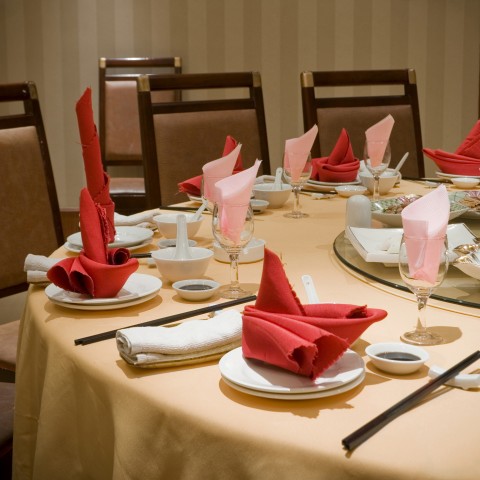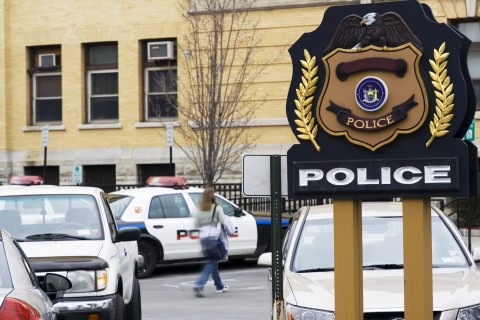Even though English is widely spoken in Hong Kong, learning Cantonese travel phrases can still be of great benefit to you. Not only will it help you navigate through the world’s greatest city better, but it can also serve as a conversation starter with the locals and help you understand the culture better. That’s why we’ve put together this guide about Cantonese travel phrases for those who speak English.
Can’t wait to put some Cantonese travel phrases in your pocket? Read below and let CantoneseClass101.com give you a hand with our Hong Kong travel words list! Here, you’ll find Cantonese travel phrases and words translated to English to help you navigate the country.
Table of Contents
- Basic Expressions
- Transportation
- Shopping
- Restaurants
- Asking for and Giving Directions
- Emergencies
- Flattery Phrases
- Useful Phrases to go through Language Problems
- Conclusion: How CantoneseClass101.com Can Help You Learn More Cantonese
1. Basic Expressions
These are the travel phrases in Cantonese that you should know to have basic conversations with people while in Hong Kong.
1. 唔該
Romanization: m4 goi1.
Meaning: Thank you. (When someone offers help to you.)
2. 多謝
Romanization: do1 ze6
Meaning: Thank you. (When someone presents a gift.)
Additional Notes:
You should always say 多謝 (do1 ze6) when you receive a gift, regardless of the person’s age or seniority. Being polite will help you fit in and be appreciated by your peers. Thus, this is one of the most important travel phrases in Cantonese for you to learn.
3. 對唔住
Romanization: deoi3 m4 zyu6.
Meaning: Sorry.
Additional Notes:
This phrase literally means “sorry” and can be used in both formal and informal settings. Note that we only use this phrase when we want to express our apology and remorse. If you want to say that you’re sorry in the sense of expressing your regret or sadness over a news story or an incident, 唔好意思 (m4 ho2 ji3 si3) is more suitable.
4. 唔好意思
Romanization: m4 ho2 ji3 si3
Meaning: Excuse me. / Sorry.
Additional Notes:
There are, broadly, three scenarios where you can use 唔好意思 (m4 ho2 ji3 si3):
- To grab someone’s attention (e.g. “excuse me”).
- To express your regret or sadness over bad news or an incident.
- To apologize for minor incidents.
Comparatively, 對唔住 (deoi3 m4 zyu6) is more formal and is mainly reserved for serious offenses. When you’re speaking informally with friends, the most common apology is 唔好意思 (m4 hou2 ji3 si3).
5. 好
Romanization: hou2.
Meaning: Good. / Fine. / Yes.
6. 再見
Romanization: zoi3 gin3.
Meaning: Bye.
Learn how to greet others in Cantonese with our article on Greetings!
2. Transportation
Knowing these Cantonese language travel phrases will prove beneficial once you find yourself in need of transportation. Let’s take a look.
1. 呢班車去邊度㗎?
Romanization: ni1 baan1 ce1 heoi3 bin1 dou6 gaa3
Meaning: Where does this bus go?
2. 我可以點去__呀?
Romanization: ngo5 ho2 ji5 dim2 heoi3 __ aa3
Meaning: How do I get to __?
Additional Notes:
You fill in the blank with the place you want to get to, like 車站 (ce1 zaam6) meaning “bus stop,” 機場 (gei1 coeng4) meaning “the airport,” or 酒店 (zau2 dim3) meaning “hotel.” Learning this sentence will definitely help you navigate through and explore the city—if you don’t know how to get to an attraction or a restaurant that you’d like to try out, use this!
3. 一張去__嘅飛, 唔該
Romanization: jat1 zoeng1 heoi3 __ ge3 fei1, m4 goi1.
Meaning: A ticket to __ please, thanks.
Additional Notes:
You can fill in the blank with the place or town you want to go to, such as 元朗 (jyun4 long5), 銅鑼灣 (tung4 lo4 waan1), and 西貢 (sai1 gung3). You may want to check in advance to discover what each town in Hong Kong has to offer.
4. 班火車會幾點到呀?
Romanization: baan1 fo2 ce1 wui5 gei2 dim2 dou3 aa3
Meaning: When will the train arrive?
Additional Notes:
The railway systems in Hong Kong are some of the most efficient, where trains come in every other minute during peak hour. But still, time is limited for travelers, and it wouldn’t hurt to learn this phrase and put it in your pocket.
5. __領事館喺邊呀?
Romanization: __ling5 si6 gun2 hai2 bin1 aa3
Meaning: Where is __ Consulate?
Additional Notes:
You can fill in the blank with the name of the country:
- Italy: 意大利 (ji3 daai6 lei6)
- Brazil: 巴西 (baa1 saai1)
- Japan: 日本 (jat6 bun2)
- UK: 英國 (jing1 gwok3)
- Denmark: 丹麥 (daan1 mak6)
- France: 法國 (faat3 gwok3)
- The Netherlands: 荷蘭 (ho4 laan1)
- US: 美國 (mei5 gwok3)
Many countries have set up a consulate in Hong Kong. You may find more information if you need help from the consulate of your country.
3. Shopping
A trip to Hong Kong wouldn’t be complete without a little shopping! Study these Hong Kong travel words’ translation to pave the way for a more enjoyable shopping experience.
1. 幾多錢呀?
Romanization: gei2 do1 cin2 aa3
Meaning: How much is this?
2. 太貴喇
Romanization: taai3 gwai3 laa3.
Meaning: It’s too expensive.
Additional Notes:
This phrase will help you a lot when you negotiate for cheaper prices in the Ladies Market.
3. 我俾唔起
Romanization: ngo5 bei2 m4 hei2.
Meaning: I can’t afford it.
4. 我可唔可以退貨?
Romanization: ngo5 ho2 m4 ho2 ji3 teoi3 fo3?
Meaning: Can I get a refund?
5. 我可以去邊度唱錢呀?
Romanization: ngo5 ho2 ji5 heoi3 bin1 dou6 coeng3 cin2 aa3?
Meaning: Where can I exchange foreign currency?
6. 可唔可以俾個袋我呀?
Romanization: ho2 m4 ho2 ji5 bei2 go3 doi2 ngo5 aa3?
Meaning: Can I have a bag?
Additional Notes:
Hong Kong has implemented the Environmental Levy Scheme on Plastic Shopping Bags. Now a plastic shopping bag costs HKD0.5.
7. 你找錯錢
Romanization: nei5 zaau2 co3 cin2.
Meaning: You gave me the wrong change.
8. 我可唔可以用信用卡找數?
Romanization: ngo5 ho2 m4 ho2 ji3 jung6 seon3 jung6 kaat1 zaau2 sou3?
Meaning: Can I pay with a credit card?
9. 可唔可以換細一個碼?
Romanization: ho2 m4 ho2 ji3 wun6 sai3 jat1 go3 maa5?
Meaning: Can you exchange it for a smaller size?
Check out this link to learn Cantonese numbers!
4. Restaurants
Eating out and enjoying local cuisine—maybe the best part of traveling to a new country. Take some time to study these Cantonese travel phrases in English, and practice them in Cantonese. This will make your dining experience superb!
1. 唔該俾張餐牌我睇
Romanization: m4 goi1 bei2 zoeng1 caan1 paai4 ngo5 tai2 .
Meaning: Please bring me the menu.
2. 呢度有乜嘢食出名呀?
Romanization: ni1 dou6 jau5 mat1 je5 sik6 ceot1 ming2 aa3?
Meaning: What’s your house specialty?
3. 我食素
Romanization: ngo5 sik6 sou3.
Meaning: I’m a vegetarian.
4. 我想要___
Romanization: ngo5 soeng2 jiu3 ___.
Meaning: I want ___.
Additional Notes:
You can fill in the blank with the food that you’d like to get, like 牛 (ngau4) meaning “beef,” 蔬菜 (so1 coi3) meaning “vegetables,” and 多士 (do1 si2) meaning “toast.”
5. 唔該埋單
Romanization: m4 goi1 maai4 daan1.
Meaning: Check, please.
5. Asking for and Giving Directions
When studying travel phrases to learn Cantonese, you absolutely can’t forget about directions. Here are the most basic travel phrases in Hong Kong local language to help you get around without getting lost!
1. 可唔可以喺張地圖度指俾我睇呀?
Romanization: ho2 m4 ho2 ji5 hai2 zoeng1 dei6 tou4 dou6 zi2 bei2 ngo5 tai2 aa3?
Meaning: Can you show me on the map?
When you ask for directions, you may get a short answer: 向南行 (hoeng3 naam4 hang4), which means “Walk in the direction of south.” But of course, “south” is just one example, and the direction can be replaced by most of the words below.
2. 北
Romanization: bak1
Meaning: North
3. 南
Romanization: naam4
Meaning: South
4. 東
Romanization: dung1
Meaning: East
5. 西
Romanization: sai1
Meaning: West
6. 左
Romanization: zo2
Meaning: Left
7. 右
Romanization: jau6
Meaning: Right
8. 直行
Romanization: zik6 hang4.
Meaning: Go straight.
6. Emergencies
In an emergency, knowing these travel phrases in Hong Kong local language may just save the day!
1. 救命!
Romanization: gau3 ming6!
Meaning: Help!
Additional Notes:
You can call either 112 or 999 when you encounter an emergency. These are the most common emergency telephone numbers that can be dialed, free of charge, from most mobile telephones, even if they’re locked.
2. 小心!
Romanization: siu2 sam1!
Meaning: Watch out!
3. 唔好搞我!
Romanization: m4 hou2 gaau2 ngo5!
Meaning: Leave me alone!
4. 唔該幫我叫醫生.
Romanization: m4 goi1 bong1 ngo5 giu3 ji1 saang1.
Meaning: Please call a doctor for me.
5. 我唔舒服.
Romanization: ngo5 m4 syu1 fuk6.
Meaning: I’m not feeling well.
6. 我唔見咗個銀包.
Romanization: ngo5 m4 gin3 zo2 go3 ngan4 baau1.
Meaning: I lost my wallet.
7. Flattery Phrases
When you learn Cantonese travel phrases, it’s always good to have some flattery phrases up your sleeve. Everyone loves a compliment!
1. 你好叻!
Romanization: nei5 hou2 lek1!
Meaning: You are so smart!
2. 你好靚!
Romanization: nei5 hou2 leng3!
Meaning: You are so beautiful!
3. 件外套好襯你.
Romanization: gin6 ngoi6 tou3 hou2 can3 nei5.
Meaning: The jacket looks good on you.
4. 你好有品味.
Romanization: nei5 hou2 jau5 ban2 mei6.
Meaning: You have good taste.
5. 你好搞笑.
Romanization: nei5 hou2 gaau2 siu3.
Meaning: You have a great sense of humor.
8. Useful Phrases to go through Language Problems
1. 我唔識講廣東話.
Romanization: ngo5 m4 sik1 gong2 gwong2 dung1 waa2.
Meaning: I can’t speak Cantonese.
2. 你識唔識講英文呀?
Romanization: nei5 sik1 m4 sik1 gong2 jing1 man2 aa3?
Meaning: Do you speak English?
3. 我唔識講普通話.
Romanization: ngo5 m4 sik1 gong2 pou2 tung1 waa2.
Meaning: I can’t speak Mandarin.
4. 我唔明.
Romanization: ngo5 m4 ming4.
Meaning: I don’t understand.
5. 呢度有冇人識講英文呀?
Romanization: ni1 dou6 jau5 mou5 jan4 sik1 gong2 jing1 man2 aa3?
Meaning: Anyone here speak English?
9. Conclusion: How CantoneseClass101.com Can Help You Learn More Cantonese
We went over a lot of useful Cantonese travel phrases, didn’t we? We hope you can see why travel phrases in Cantonese language learning are so vital, and how they can help you have a much better visit to Hong Kong.
Want to level up your Cantonese? No worries. With CantoneseClass101.com, you can have your daily dose of Cantonese whenever and wherever you want, through mobile apps, desktop software, and our website. We offer entertaining, engaging, and effective lessons on various aspects of the Cantonese language and culture.
Until now, we’ve delivered more than 750,000,000 lessons to thousands of happy students from all around the globe. You can learn Cantonese with over 1060 audio and video lessons delivered by our knowledgeable and energetic hosts, detailed PDF lesson notes, an abundance of vocabulary learning tools, spaced repetition flashcards, and a lively community to discuss the lessons with fellow learners. What are you waiting for? Download our lessons, enjoy our audio and video files, and start learning now!
And keep in mind that if you prefer a one-on-one learning approach and want to further accelerate your Cantonese learning, you can take advantage of our MyTeacher program when you upgrade to Premium Plus!



















